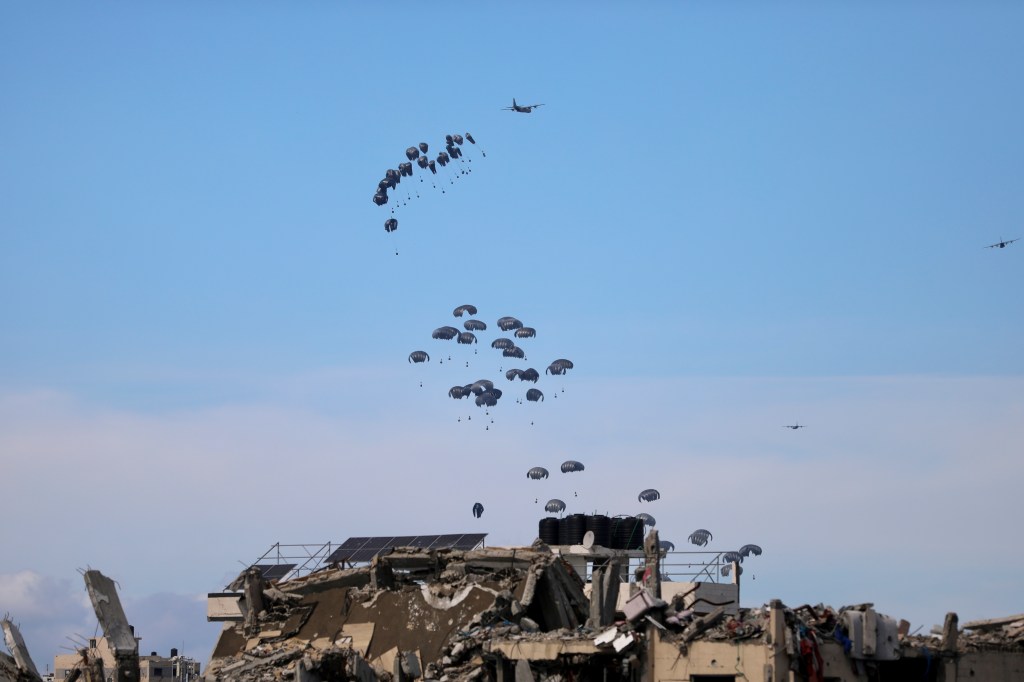Israeli protesters try to stop aid from entering Gaza Strip: ‘Not a single loaf of bread’
Contact The Author
A group of insistent Israeli protesters is trying to block aid trucks from crossing into the Gaza Strip, vowing that “not a single loaf of bread” should reach those trapped in the tiny region until all the remaining hostages are released.
The area around Kerem Shalom – Israel’s only functioning border crossing with Gaza – is a closed military zone as police try to ensure that the aid trucks cross unimpeded, CNN reported.
But the officers’ presence hardly deters dozens of protesters — mostly settlers, families of hostages, and deactivated military reservists — who trek through the area in an attempt to slow the trucks’ progress, the outlet said.
“If we knew it’s getting children of Gaza, we [would not] do it…this arrives into the tunnels of Hamas, fighting us and holding our hostages,” protester Debbie Sharon told CNN as she pointed at the truck convoy.
There is no evidence that the majority of the aid — including food and medical supplies — is going to the terror group, the report said.
As of Saturday morning, it’s believed Hamas is still holding about 134 hostages who were kidnapped during the Oct. 7 terror attack.
Sharon and her fellow protestors are demanding that aid stop entering Gaza — where over 30,000 people have died, according to the Hamas-linked Palestinian Ministry of Health, and starvation looms for many — until those hostages are released.
“They should get only the minimum calories to survive,” another protester, Katya, insisted… “if they are starving to death, give the hostages back.
“Not a single loaf of bread should go there till our hostages are coming back,” she added.
When questioned about the scale of the human suffering in Gaza, Katya was unmoved.
“Even if there is a humanitarian crisis — and there is not — it is my right and my duty to prioritize the Kfir Bibas…over any Gazan babies,” she said.
Kfir Bibas was only nine months old when he was taken captive by Hamas alongside his mother, Shiri, his father, Yarden, and two-year-old brother, Ariel.
The little boys, whose whereabouts are still unknown, became known around the globe as “the Reds” due to their flame-colored hair.
The protesters at Kerem Shalomm, which include many parents with their own young children in tow, are led by Tsav 9, or Order 9, a movement named after the emergency mobilization alert for reservists.
Some officers stationed at the crossing were even forced to tackle some protesters who refused to stand down, CNN said.
A poll by the Israel Democracy Institute revealed that the group’s anti-aid stance has strong support.
Meanwhile, food and drinking water are becoming scarce in the Gaza Strip, and malnutrition is on the rise, according to the World Health Organization.
Aid, however, has been slow to reach the region: Between February 24 and March 3, less than 1,000 trucks total entered Gaza — far below the required 500 per day, CNN reported, citing a UN official.
Some countries, including the US, have started delivering aid via air, but road access remains crucial, the agency said.
The US has also started efforts to build a temporary port where aid can be delivered by sea.















